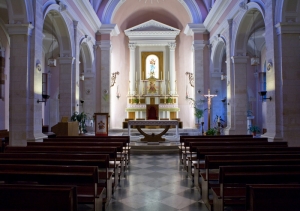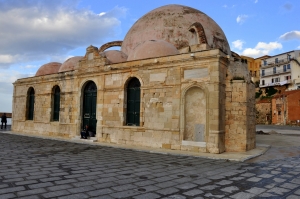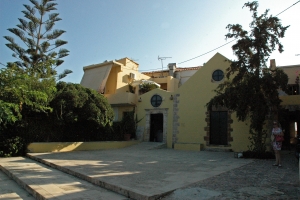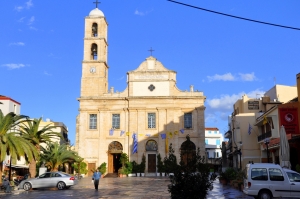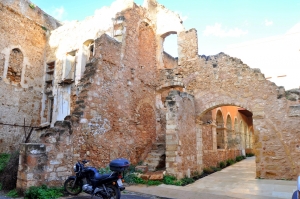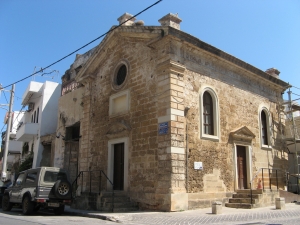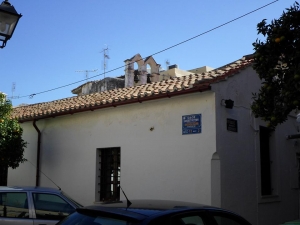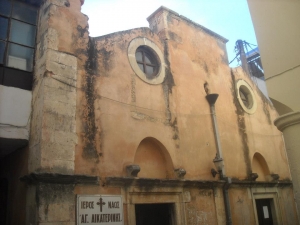The Roman Catholic Church in Chania (1842) meets in the town centre at Halidon 46, the road that leads from 1866 Square down to the harbour front, in a beautiful building just set back from the main frontage.
The Küçük Hasan Pasha Mosque or Gialisi Tzami (mosque of the sea) is actually the only preserved mosque of the city of Chania. It was built on the site of a preexisting Christian temple after the conquest of Chania by the Ottomans in 1645, honoring Küçük Hasan Pasha.
The museum has been housed since 1997 in the church of the monastery of San Salvatore, dating probably from the 15th century, next to the bastions on the west side of the Venetian fortifications of Chania.
The present Cathedral temple of "Eisodion" was built on the place of an older temple of "Theotokos" (Virgin Mary) Trimartiri, dating back to the 14th century. When the city of Chania was occupied by the Turks in 1645, the temple was converted into a soap-factory without altering its initial design.
The Monastery of Santa Maria was built by Marussa Mengano in 1615 for the Dominican nuns of Chania. The Monastery was described by the Venetian Inquisitor G. Perpigano in 1620, who wrote that it had comfortable cells south from the catholic.
At the northwestern edge of the square Splantzia we meet the church of San Rocco. The construction of the temple took place in 1630, probably after the outbreak of a plague, as Saint Rokkos was the protector against plague.
A parish temple located on the homonym district of Aghioi Anargyroi, which is recorded from 1583 in Venetian documents. Despite its small size, the district is represented in most of the city's images.
The temple of Saint Ekaterini (Agia Aikaterini) is located in a short distance from Aghios Nikolaos of Splantzia. It is a two-aisled structure with a front that ends to a gable. The base of the bell-tower can still be seen in the yard. The door-frames are supported by chiseled pseudo-pillars and are crowned with gothic relief arches.
- 1
- 2











